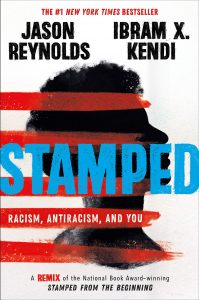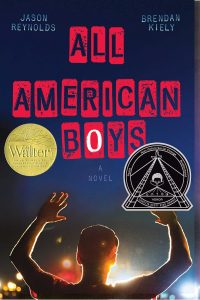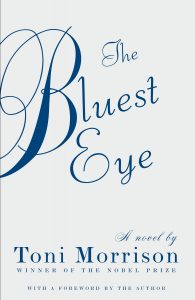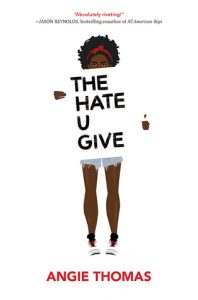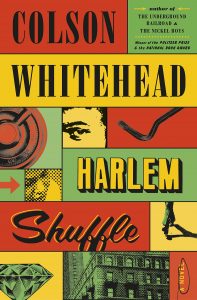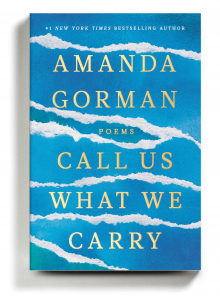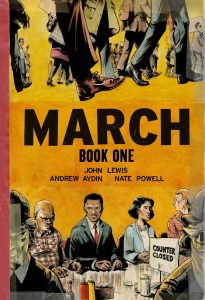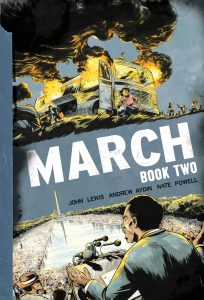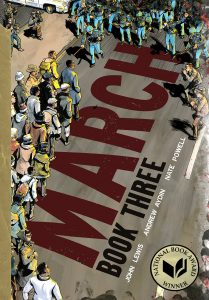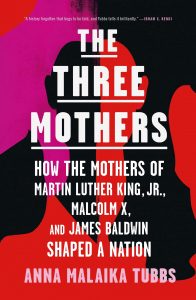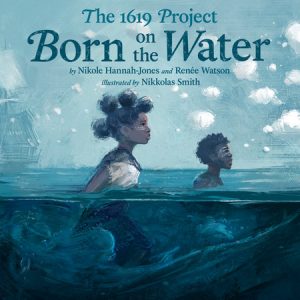To know the past is to know the present. To know the present is to know yourself.
-Ibram X. Kendi
In the previous UGL Blog post, we talked about the recent rise of banned and challenged books. As Black History Month comes to a close, I’d like to draw your attention to the ALA’s Top 10 Banned Books of 2020, and how six are challenged because they relate experiences of Black Americans. Reading and learning are the greatest tools we have to fight against banned books and ignorance. There is power in sharing experiences and knowledge through books.
In honor of Black History Month, and to keep its spirit going all year round, here is a list of books by Black authors that tell powerful stories. Though the ALA’s Banned Books list is mainly books for younger readers, this list has something for all ages, so you can share with all of your loved ones!
Banned Books:
Stamped: Racism, Antiracism, and You by Jason Reynolds and Ibram X. Kendi
A remix of Ibram X. Kendi’s award winning Stamped from the Beginning, this book takes you on a journey through the history of racist ideas. This book shows how racist ideas are created, perpetuated, but also how they can be discredited. It is an excellent book for those who want to see how racism affects their own lives as well as the lives around them and helps examine how to stamp out racist ideas in our daily lives. Nonfiction, written for a teen audience.
From the American Library Association: “Banned and challenged because of author’s public statements, and because of claims that the book contains “selective storytelling incidents” and does not encompass racism against all people.”
You can request Stamped: Racism, Antiracism, and You from the University of Illinois Library.
All American Boys by Jason Reynolds and Brendan Kiely
Jason Reynolds again! This time this fictional story, written for a teen audience, uses alternating narrators tell the story of Rashad and Quinn, one black teen and one white, and the violent act of police brutality that begins to tear their community apart. A story that is reminiscent of those we hear about in the news. Fiction, written for a teen audience.
From the American Library Association: “Banned and challenged for profanity, drug use, and alcoholism, and because it was thought to promote anti-police views, contain divisive topics, and be ‘too much of a sensitive matter right now.’”
You can request All American Boys from the University of Illinois Library.
The Bluest Eye by Toni Morrison
Toni Morrison is a Nobel Prize winner and for good reason, she writes stories about people that you can’t forget. The Bluest Eye is a novel about an 11-year-old Black girl named Pecola who has one wish- for her eyes to turn blue. She sees the way the blond-eyed blue-eyed children are treated- as beautiful- and she yearns to be seen as beautiful as well. Her yearning draws us through the story as we begin to question our own obsession with beauty and conformity. The Bluest Eye is often read by high schoolers and is recommended to any adult that hasn’t picked it up yet.
From the American Library Association: “Banned and challenged because it was considered sexually explicit and depicts child sexual abuse.”
You can request The Bluest Eye from the University of Illinois Library.
The Hate U Give by Angie Thomas
A novel about sixteen-year-old Starr, who splits her life between the poor neighborhood where she lives and the affluent, suburban school she attends. Starr’s world is shattered when she witnesses the killing of her friend, an unarmed black young man, by the police. As her community splinters, some calling the man a victim and some a thug, Starr is the only person who knows the truth about what happened that night. Does she have the courage to speak that truth, even if it will upend her community? Great for teens and older, and a film adaptation came out in 2018.
From the American Library Association: “Challenged for profanity, and it was thought to promote an anti-police message.”
You can request The Hate U Give from the University of Illinois Library.
Though not (yet) popularly banned, the following books are by Black authors and you won’t want to miss them.
Harlem Shuffle by Colson Whitehead
This novel by Pulitzer Prize winning author Colson Whitehead drops the reader in 1960’s New York with Ray Carney, furniture salesman. Ray runs an upstanding shop, but with money tight he occasionally does some under the table business in questionable acquisitions (read: stolen goods). But when Ray’s cousin gets involved in a high-profile jewelry heist Ray gets pulled into a much seedier and darker world. Thus begins the struggle between Ray Carney the straight-shooting salesman, and Ray Carney the crook. He must navigate the two all while keeping his shop, saving his cousin, and keeping himself from getting killed. A great adult fiction novel for those who love capers, Harlem, or just good storytelling.
You can request Harlem Shuffle from the University of Illinois Library.
Call Us What We Carry by Amanda Gorman
Having captured the spotlight, and our hearts, with her moving poem “The Hill We Climb” at the 2021 inaugural address, Amanda Gorman’s collection of poetry is perfect for any lovers of the beauty of words. Exploring language, identity, erasure, Gorman’s poems capture the complexity of these unprecedented times. (Formerly known as The Hill We Climb and Other Poems.)
You can request Call Us What We Carry from the University of Illinois Library.
March (Trilogy) by John Lewis and Andrew Aydin, illustrated by Nate Powell
The March trilogy is written by American icon and civil rights activist John Lewis. These graphic novels are a vivid first-hand account of John Lewis’ lifelong struggle for civil and human rights. Rooted in Lewis’ personal story, the graphic novels reflect on the distance traveled from the days of Jim Crow and segregation but doesn’t shy away from asking how much further we need to go. Visually stunning and offering an intimate look inside the civil rights movement, March is perfect for reluctant readers and fans of art books as well as those who appreciate honest and unflinching memoir.
You can request March: Book One, March: Book Two, and March: Book Three from the University of Illinois Library.
The Three Mothers: How the Mothers of Martin Luther King, Jr., Malcolm X, and James Baldwin Shaped a Nation by Anna Malaika Tubbs
History is full of stories of great men, but often we forget about the very real women who supported those men. The Three Mothers looks at three Black women who survived Jim Crow and passed on their strength, resistance, and a fundamental right to dignity of Black people to their sons, who would go on to do great things. This non-fiction book is perfect for anyone who is interested in American history, but especially great for those who are interested in seeing that history from a different angle.
You can request The Three Mothers: How the Mothers of Martin Luther King, Jr., Malcom X, and James Baldwin Shaped a Nation from the University of Illinois Library.
The 1619 Project: Born on the Water by Nikole Hannah-Jones and Renee Watson, illustrated by Nikkolas Smith
A picture book with stunning prose and verse that starts with a grade-school child being given a genealogy assignment. Instead of learning about her ancestor’s arrival at Ellis Island or on the Mayflower, she learns that her ancestors were stolen and brought to America by slave traders. But she also learns that before that violence, her ancestors had a home, a culture, a language. She also learns how they survived. Perfect for all ages, but especially as an introduction to American history for grades 2-5.
You can request The 1619 Project: Born on the Water from the University of Illinois Library.
Black history is rich and deep, with stories that need to be read year round. Black history is also American history, and the best way to celebrate Black History Month is to incorporate more works by Black authors into your “to be read” pile.
Written and Posted by: Maurissa


